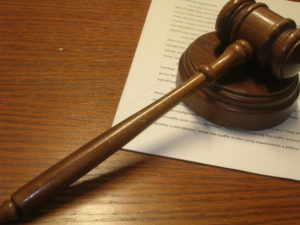Supreme Court of India’s ruling on privacy
In a historic ruling, perhaps the most significant and far reaching one in decades, the Indian Supreme Court has held that privacy is a fundamental right, delivering a big jolt to the Indian government and its pet scheme of generating biometric ID for all citizens.
A collective sigh of relief and hope spread through the various organisations fighting for civil rights across India when the full bench of nine judges in the Indian Supreme Court, in a unanimous verdict, upheld privacy to be a fundamental right and duly protected by the Constitution.
At the same time, the ruling delivered a knockout blow to the government, which had over the past several years, if not decades, chipped away at the rights of citizens, often including the very basic human rights enshrined not only in the Indian Constitution but also the Universal Declaration of Human Rights.
The case in question was filed by numerous individuals and civil rights organisations challenging the government’s push to make its unique biometric ID scheme, Aadhar, mandatory for not only the transfer of benefits to the poor, but even for unrelated activities like purchases of over INR 50,000 (EUR 650), filing of income tax returns and there was even a proposal for making Aadhar mandatory for travel!
The push by the government to make Aadhar mandatory for all activities in the country flew in the face of the law governing the scheme, the Aadhar Act, which had clearly outlined it to be a voluntary initiative. During the hearing, the government had also made an outrageous claim saying that citizens did not have a fundamental right over their body and hence could be forced to give their biometric data to the government.
“Privacy is intrinsic to freedom of life and personal liberty guaranteed under Article 21 of the Constitution,” the judges ruled, overturning two other rulings by the Court, which had held that privacy was not a fundamental right.
The win of the rights comes at a crucial time when the government had been pushing on curtailing individual rights, with laws banning consumption of beef and even trading of cattle, etc.
There have also been several attacks on freedom of expression with right-wing activists launching violent attacks, online and physically, on people expressing their concerns about the reduced space for expression and liberty in the country, especially since the current government took charge in May 2014. Trolls have attacked film actors, writers, social personalities, politicians and even students for holding their beliefs, which were not considered patriotic enough by the right-wingers.
“This is a milestone in a large history across the world on understanding of the right to privacy. The largest democracy in the world has now spoken on the question that we all face because 20th century constitutions, let alone earlier constitutions did not tend to speak of right to privacy and they certainly didn’t speak of it in terms that allowed its application to the needs of human beings in the 21st century networked society. Indian SC has taken an enormous step that is going to be looked upon by societies of law around the world with enormous importance,” Mishi Choudhary, president and legal director of Software Freedom Law Centre, a petitioner in the case was quoted by media after the Court pronounced its ruling.
For the civil rights activists, the SC ruling would force the government on the defensive and provide relief from the increasing intrusion into people’s lives.










